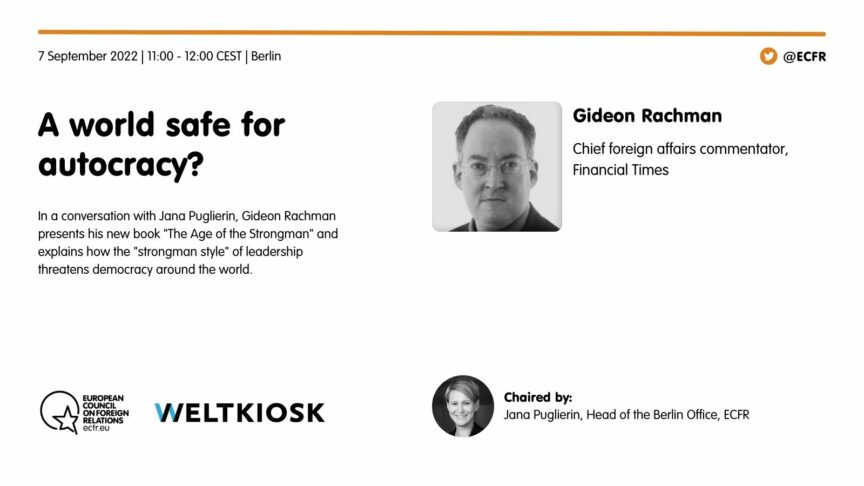
A world safe for autocracy? Gideon Rachman in conversation with Jana Puglierin
In conversation with Jana Puglierin, Gideon Rachman will present his book “The Age of the Strongmen”
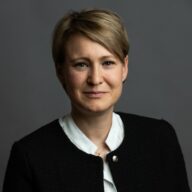
Head, ECFR Berlin
Senior Policy Fellow
German and European foreign, security and defence policy; Germany's role in Europe; transatlantic relations
German, English, Italian
Dr. Jana Puglierin is a senior policy fellow at the European Council on Foreign Relations and head of its Berlin office since January 2020. She also directs ECFR’s Re:Order project, which explores emerging visions of the global order, as well as the interplay between economic might and geopolitical influence.
She headed the Alfred von Oppenheim Centre for European Policy Studies at the German Council on Foreign Relations (DGAP) from December 2015 to December 2019, and was a research fellow with its Berlin Future Forum from September 2013 to November 2015. Before joining DGAP, she worked as an adviser for a member of the Bundestag on disarmament, arms control, and non-proliferation, as well as German and European foreign and security policy. Between 2003 and 2010, she was researcher and lecturer to the chair of political science and contemporary history as well as in the program for North American studies at the University of Bonn. In summer 2010, she held a lectureship at the Chemnitz University of Technology.
After her Abitur in Siegen in 1997, she spent a year in Paris – where she completed the Cours de civilisation française de la Sorbonne. She then studied political science, public law, and sociology at the University of Bonn from 1998 to 2003, as well as at Venice International University for a semester in 2002. In studying for her doctorate at the University of Bonn, she focused on the life and thought of political scientist John Herz, and conducted research in the United States.
Puglierin was an associate at Stiftung Neue Verantwortung in Berlin from October 2010 to October 2011. In November 2017, she was a visiting fellow at the American-German Situation Room, a joint initiative of the American Institute for Contemporary German Studies and the German Marshall Fund. She was part of the Konrad Adenauer Foundation’s Working Group of Young Foreign Policy Experts between 2007 and 2016.
She has been a member and deputy spokesperson of the Advisory Board of the Federal Academy for Security Policy since June 2022. She is also a member of the board of the European Movement Germany and the board of the German Atlantic Society.
Her work focuses on German and European foreign, security, and defence policy, as well as Germany’s role in Europe and transatlantic relations.

In conversation with Jana Puglierin, Gideon Rachman will present his book “The Age of the Strongmen”
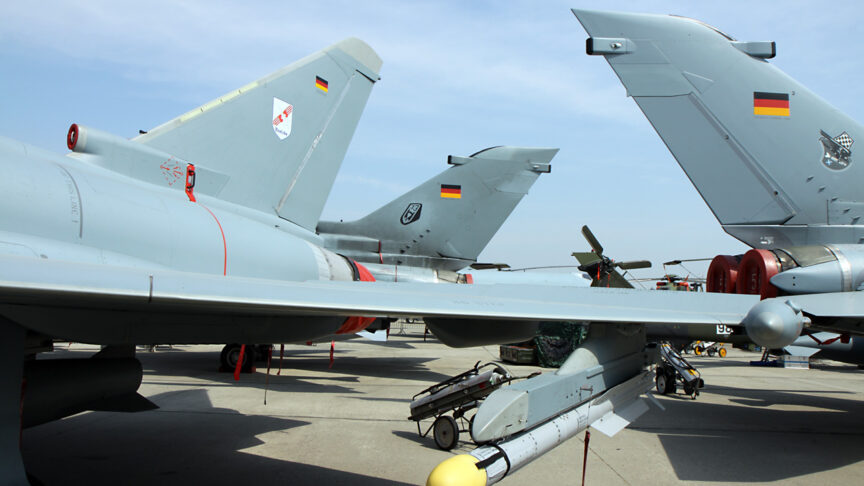
Germany’s National Security Strategy should aim for more than just a return to the status quo ante but with more money. The Zeitenwende is forcing Germany to reinvent itself as a European security actor
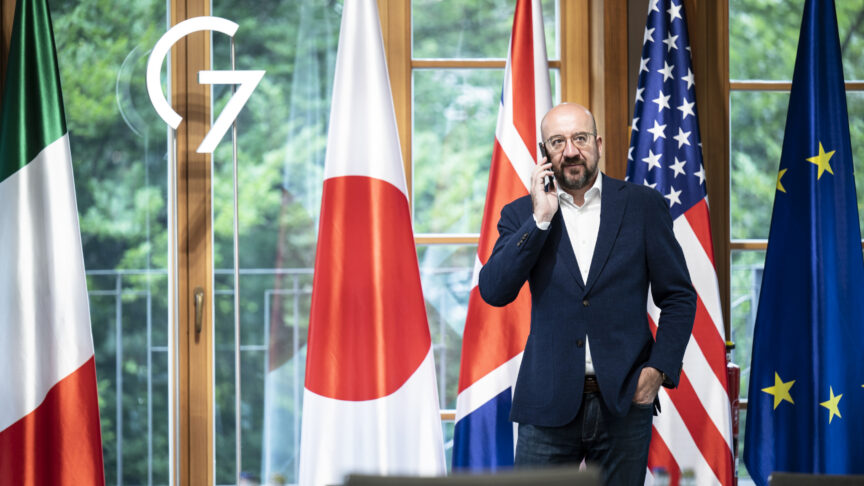
The EU has made insufficient progress in enhancing its sovereignty, particularly in security and defence. The union now needs to overcome internal differences to bolster its external ability to act
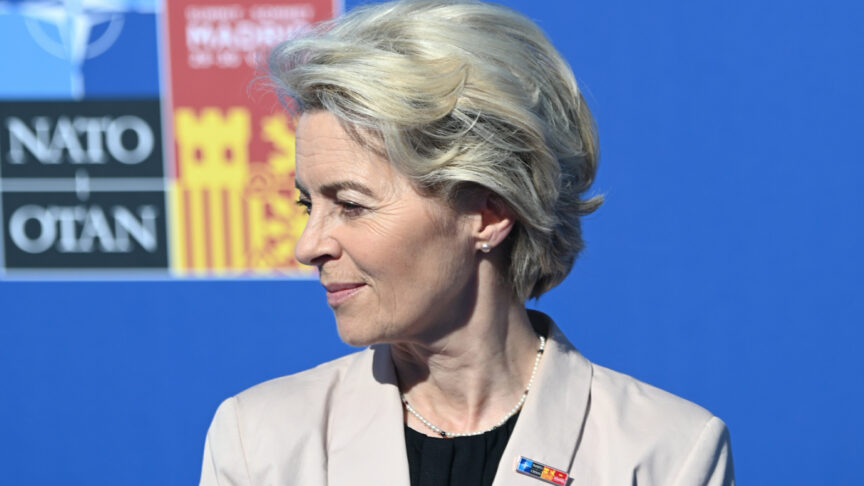
Mark Leonard is joined by Nick Witney, Jana Puglierin, and Tara Varma, to evaluate the outcomes of the NATO Summit in Madrid, especially regarding European defence
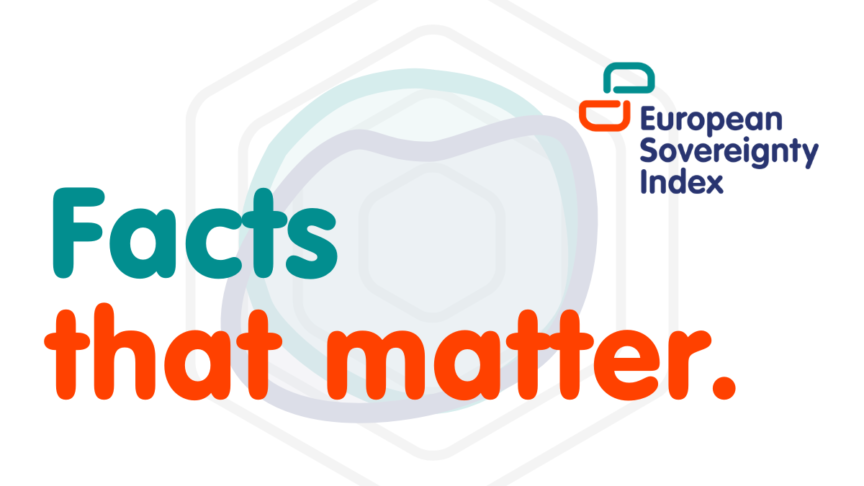
The EU can overcome the new challenges it faces and can shape the global order. To achieve this, Europeans will need to improve their joint capacity to act
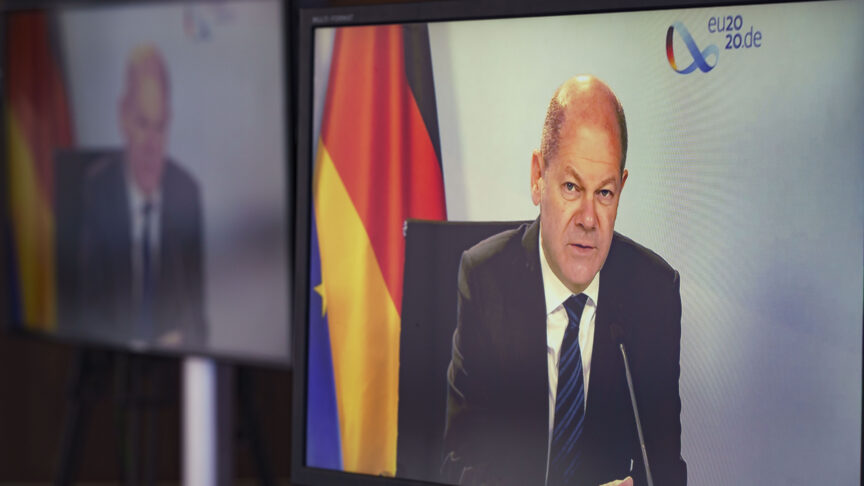
German chancellor, Olaf Scholz, is facing criticism for not meeting the expectations he created with his Zeitenwende speech. But how fair is this criticism?
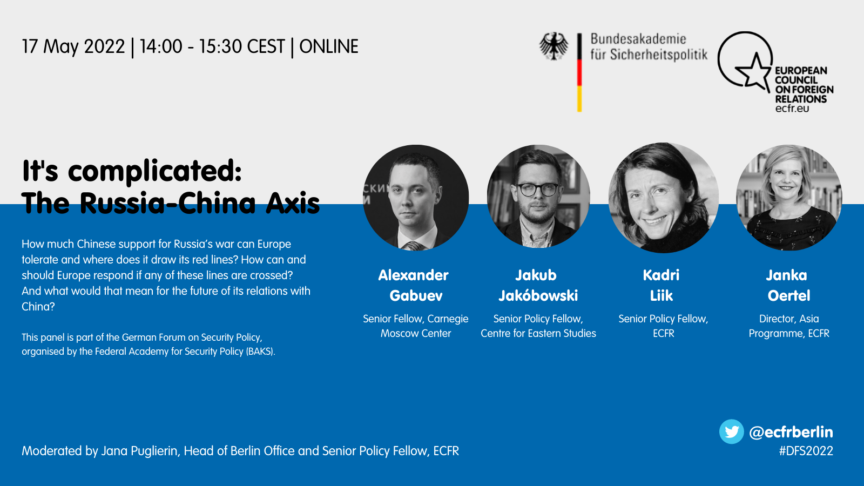
This event is part of the German Forum on Security Policy, organised by the Federal Academy for Security Policy (BAKS).
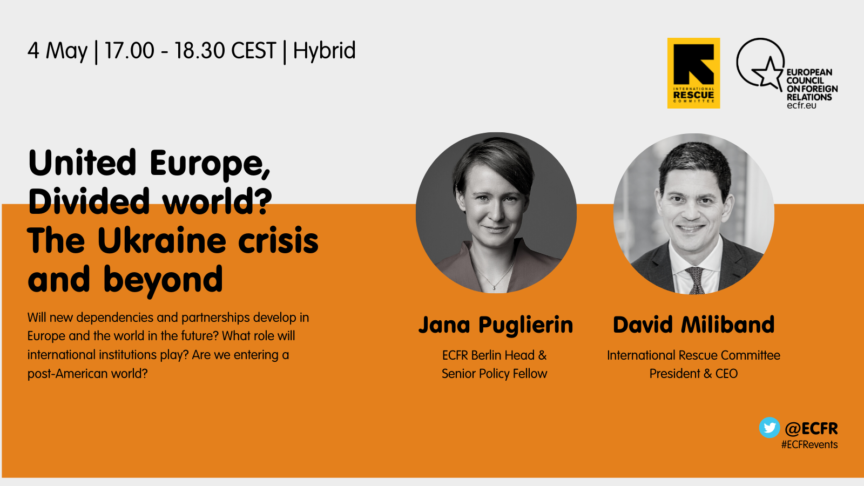
Will new dependencies and partnerships develop in Europe and the world in the future? What role will international institutions play? Are we entering a post-American world?
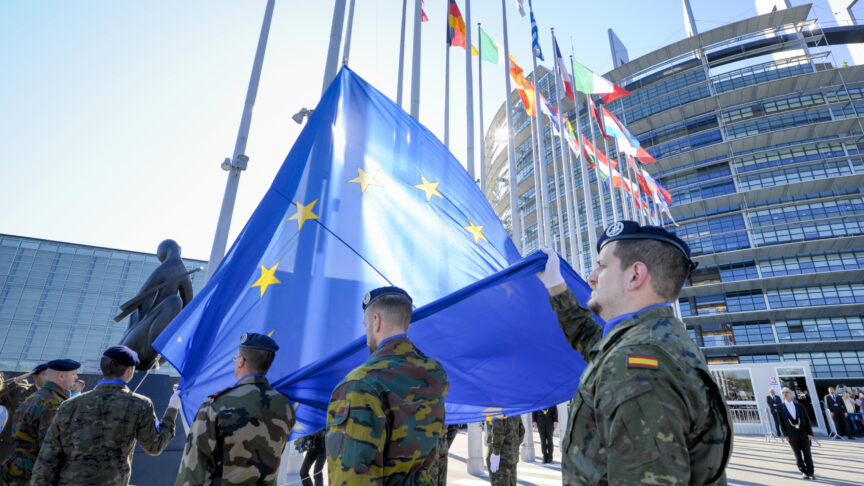
What are the biggest challenges in building greater European sovereignty in defence? And how will this effort be funded?
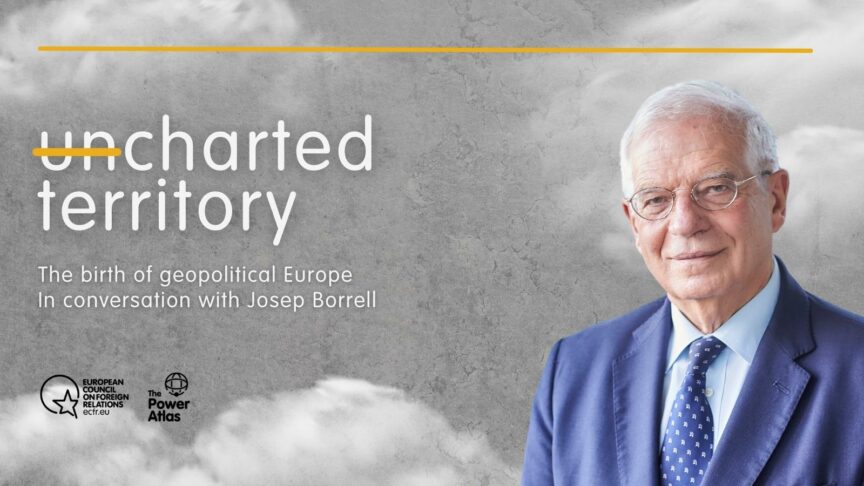
With the EU’s High Representative as our honoured guest, the panel will explore the birth of a geopolitical Europe and the new dimensions of European power with a focus on the tech, economic, and security terrains
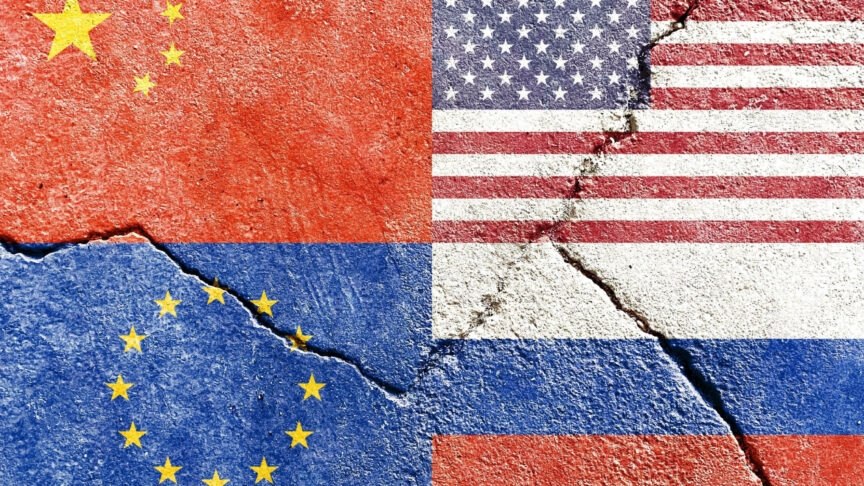
European citizens are adapting slowly to the new geopolitical landscape. But leaders have an opportunity to build public consensus on Europe’s approach to China, the US, and Russia
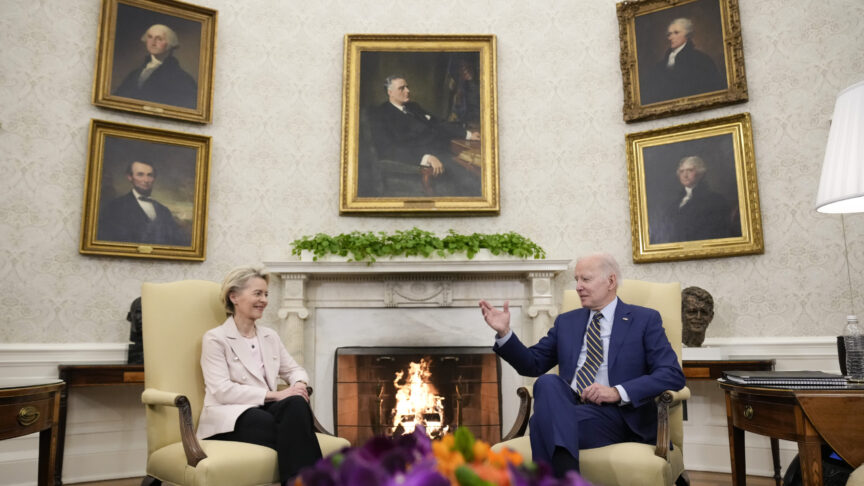
Europeans’ response to Russia’s war on Ukraine confirms their profound dependence on the US – an unwise position given the security challenge in Europe and coming geopolitical competition with China
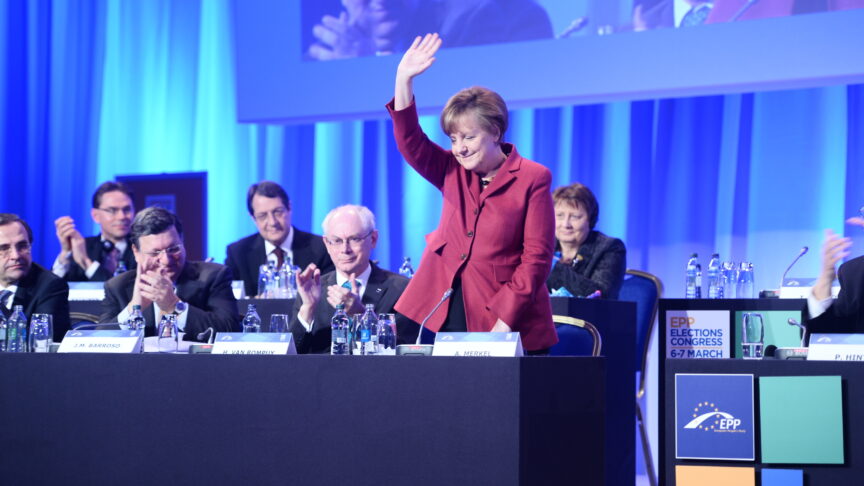
Paradoxically, to fulfil many Europeans’ expectations, Berlin will need to revise the principles of Merkelism that created this trust
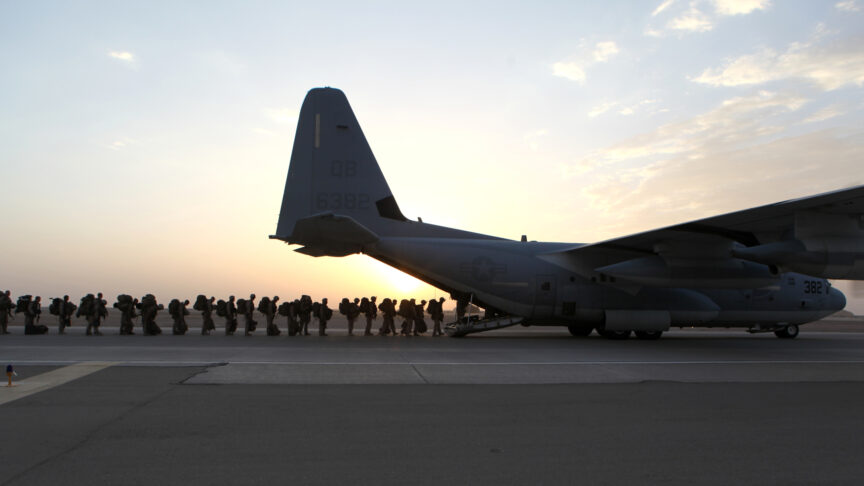
ECFR’s policy experts examine what the Taliban takeover means for countries and regions around the world: Europe, the US, the Middle East, Russia, China, Iran, Turkey, and the Sahel
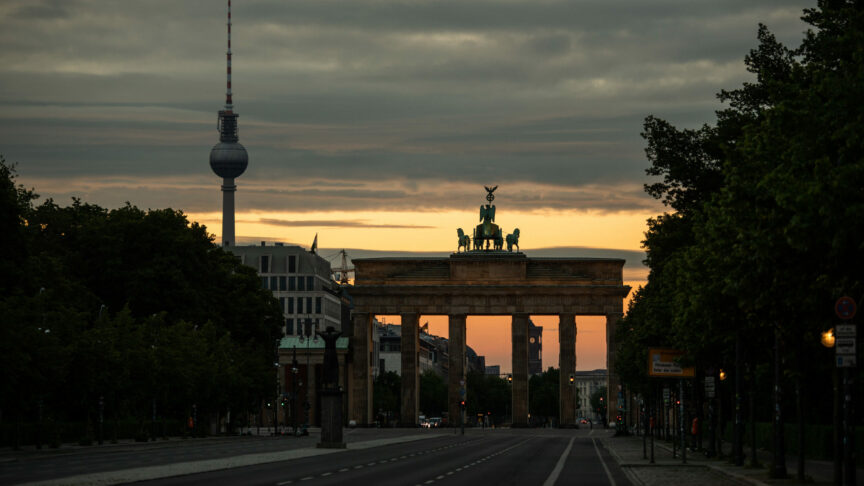
To engage more confidently with a world that is changing, outward-looking Germans need to shape a progressive new national identity before it is defined by the forces of isolation and exclusion
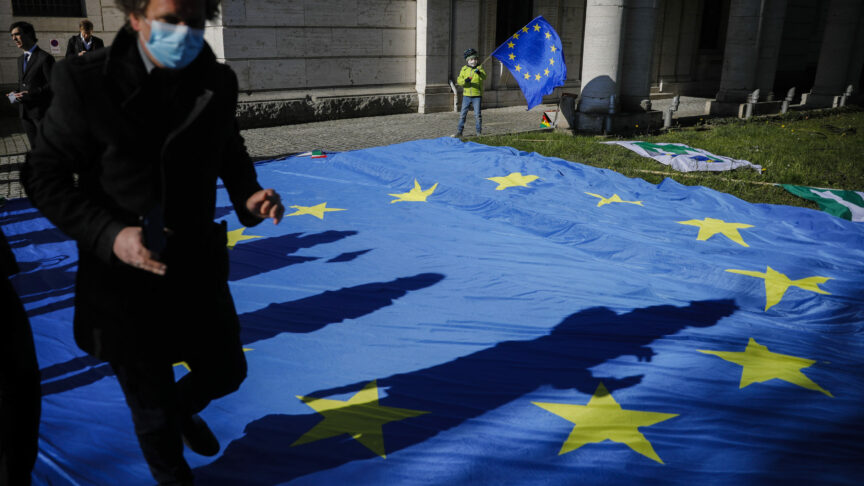
Public faith in EU institutions has declined due to their handling of the covid-19 pandemic. However, citizens still believe in the need for greater cooperation

The pandemic poses a threat to European cohesion by increasing economic divides and undermining trust in the EU and national governments
The EU Coalition Explorer survey reveals the importance of Germany and France within the EU, and the impact they can have when they cooperate with each other
Europe must improve its early warning systems, supply chain resilience, medical R&D, and cyber security and technology, to act decisively in future emergencies
A new survey shows that, after the onset of the covid-19 crisis, there has been a rise in public support for unified EU action to tackle global threats

By relying extensively on France and the US for its security and defence, Germany could easily find itself isolated and at risk. Berlin needs to act fast
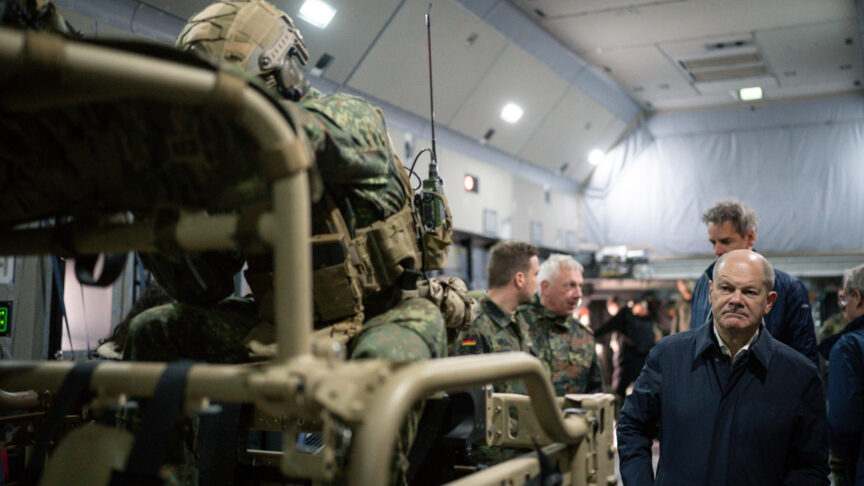
Germany’s defence policy has come a long way in the last two years. But looking at the challenges that lie ahead for Germany, the current course falls short – and the toughest political debates are yet to come
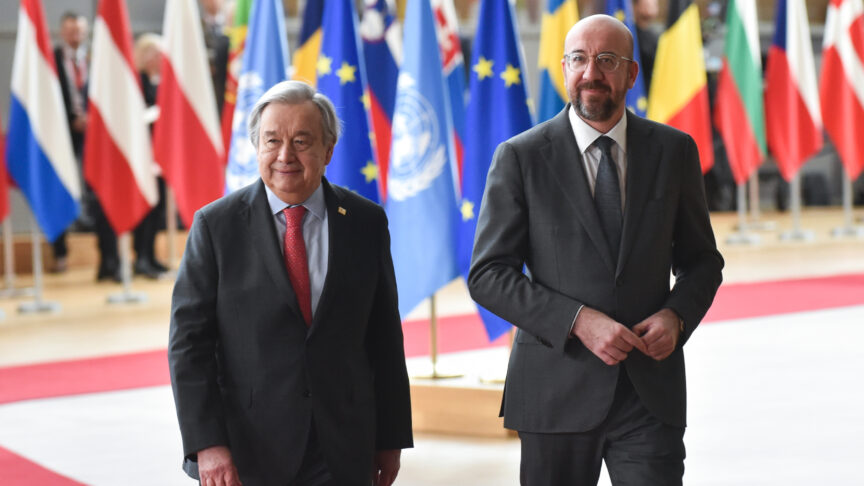
Russia’s war on Ukraine has exposed the weaknesses of the already creaking multilateral system. Europeans need to accept the radical changes that are under way and adapt their approach to international cooperation
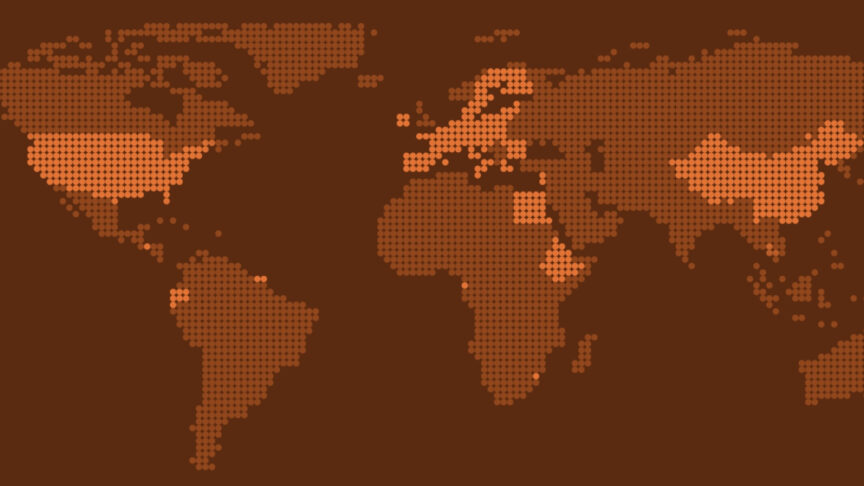
This collection of nine insightful essays illuminates the strategies employed to advance European interests and values within this evolving global polity of overlapping cooperative frameworks
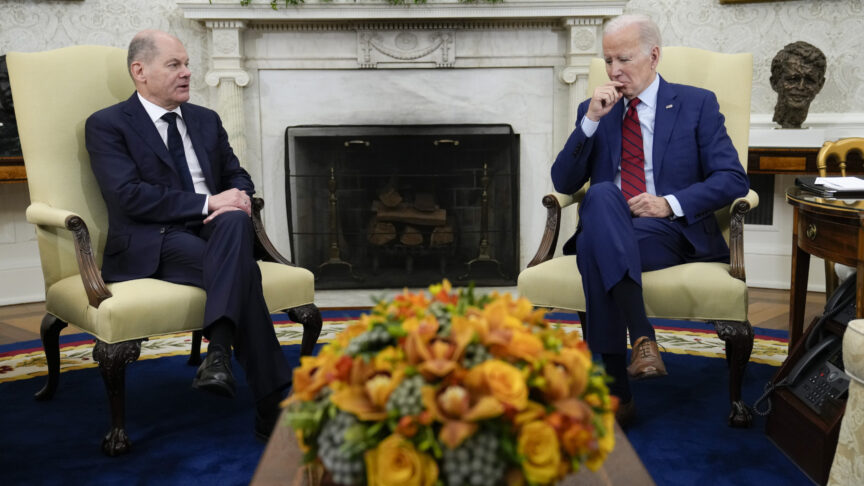
Germany cannot avoid being dragged into election debates in the US. On defence, it should focus on its own national security interests
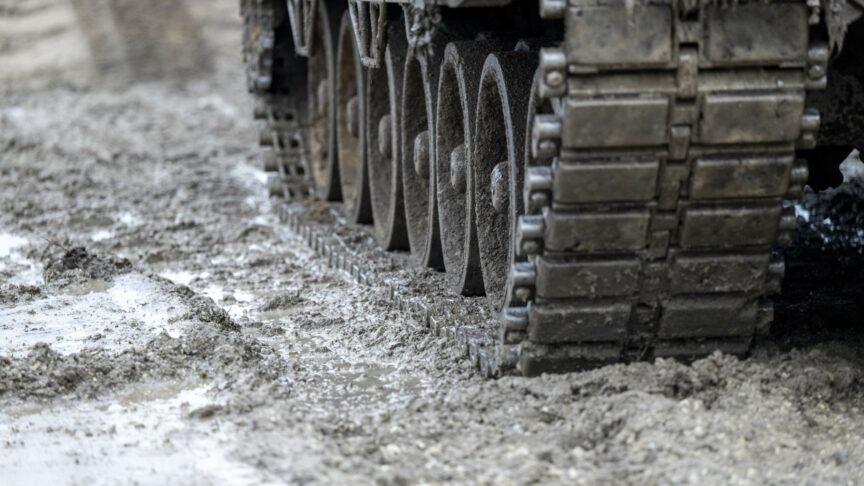
Military help for Ukraine is moving towards serious questions of logistics – but more countries still need to step forward. Here is how the next-stage coalition could look
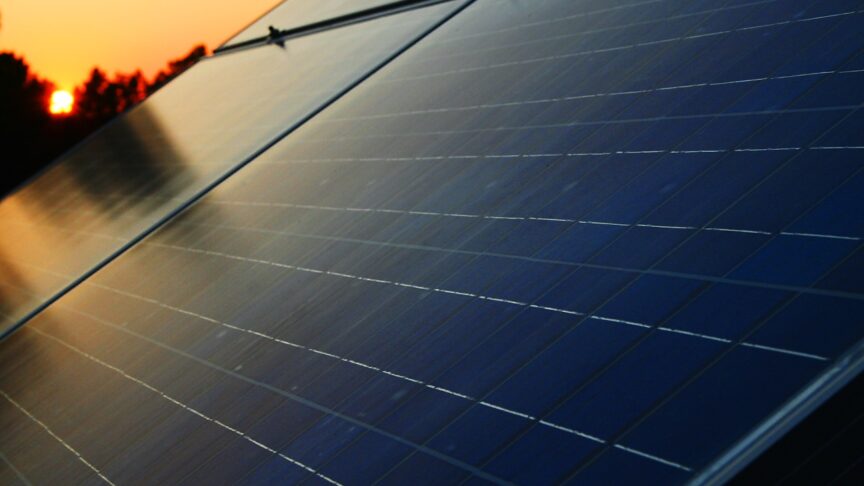
Russia’s war in Ukraine has exposed the link between energy and security policy. Renewable energies can help Germany gain energy sovereignty – and protect itself from security threats
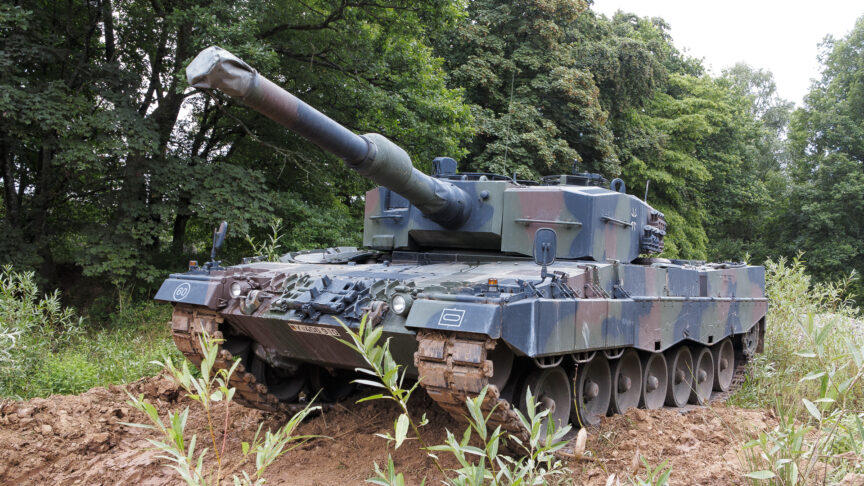
Ukraine needs to move to a new phase of the war if it is to reclaim its territory occupied by Russia. A European plan to supply Leopard tanks should be at the heart of this effort

Germany’s National Security Strategy should aim for more than just a return to the status quo ante but with more money. The Zeitenwende is forcing Germany to reinvent itself as a European security actor

The EU has made insufficient progress in enhancing its sovereignty, particularly in security and defence. The union now needs to overcome internal differences to bolster its external ability to act
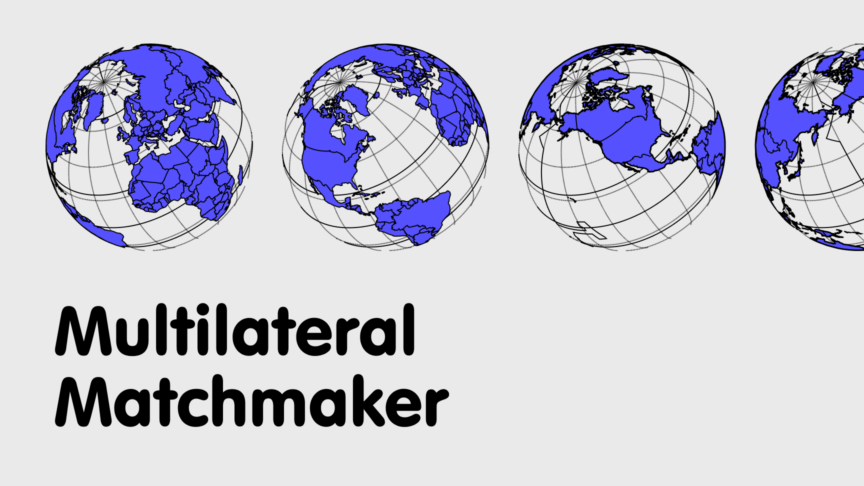
Multilateral coalitions are increasingly important for combatting global challenges. Europeans have many eligible – and untapped – potential partner countries, but to stand out they need to ensure their offer is as grounded in these partners’ interests as their own

The EU can overcome the new challenges it faces and can shape the global order. To achieve this, Europeans will need to improve their joint capacity to act
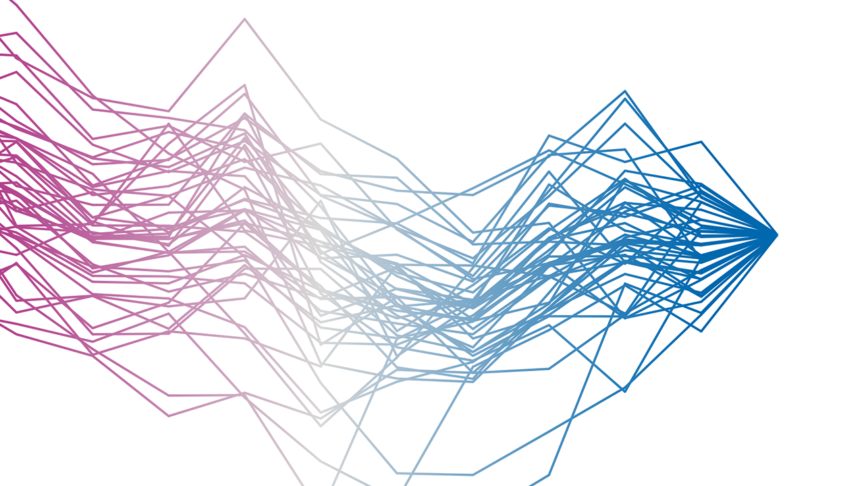
European cohesion is bouncing back after crisis years. The EU Cohesion Monitor presents new insights on cohesion as an underestimated source of strength and collective action in the EU
The Coalition Explorer illustrates the expert opinions of more than 800 respondents who work on European policy and creates a visual understanding of the views held by Europe’s professional political class
The European Solidarity Tracker collects and displays instances of pan-European solidarity throughout the coronavirus crisis
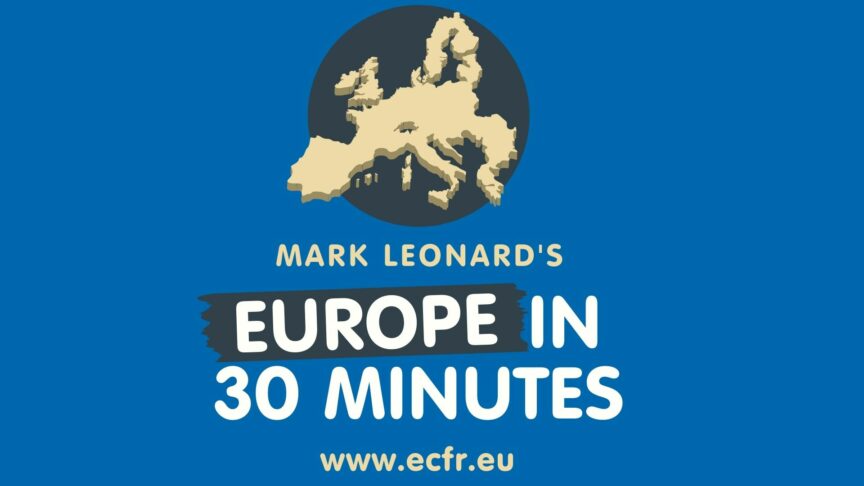
Vessela Tcherneva welcomes Camille Grand, Camille Lons, Marta Prochwicz Jazowska, and Jana Puglierin to discuss the 75th NATO summit, and how Europe can defend itself with less America

In this new episode, Vessela Tcherneva welcomes head of ECFR offices to discuss national implications of the EU elections

Mark Leonard welcomes Célia Belin, Piotr Buras, Jana Puglierin, Maria Simeonova, José Ignacio Torreblanca, and Arturo Varvelli to discuss the European Parliament elections and the future of European politics
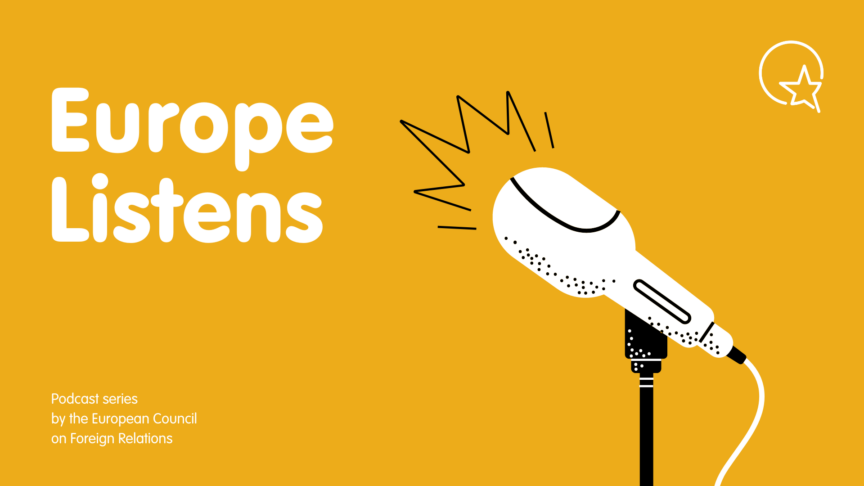
In September 2024, the United Nation’s Summit of the Future is set to take place – a crucial moment to mend “eroded trust” between peoples,…
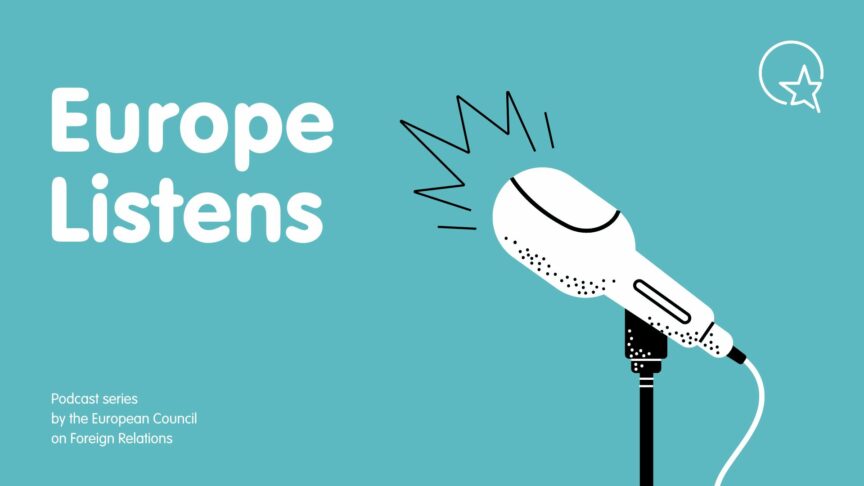
To achieve the ambitions of the European Green Deal, the European Commission insists that healthy oceans and a sustainable maritime economy are crucial. With rising…

Around 70 per cent of our planet is covered by the ocean, of which two-thirds fall beyond national jurisdiction. After decades of discussions and negotiations,…

Mark Leonard welcomes Ulrike Franke and Jana Puglierin to discuss the recent turmoil surrounding Germany’s defence policy

At the Munich Security Conference, Mark Leonard welcomes Arancha González Laya, Camille Grand and Jana Puglierin to understand how Europeans can prepare for a second Trump presidency
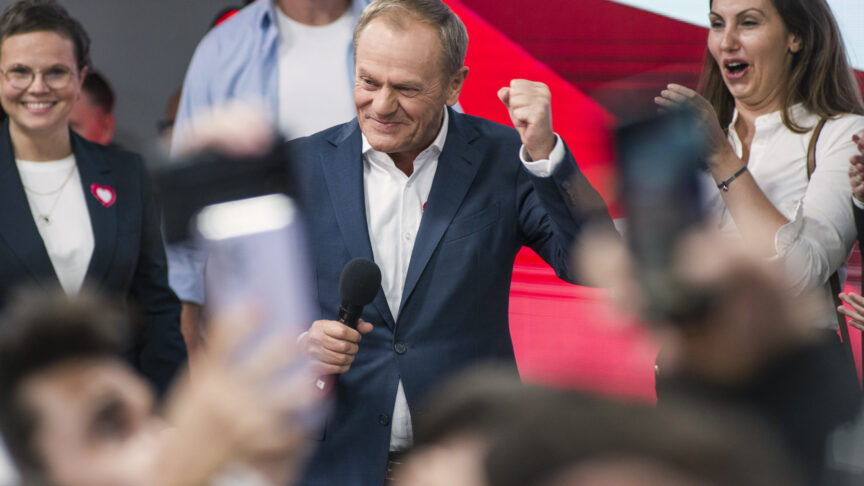
Mark Leonard welcomes Piotr Buras and Jana Puglierin to discuss Poland’s return to Europe
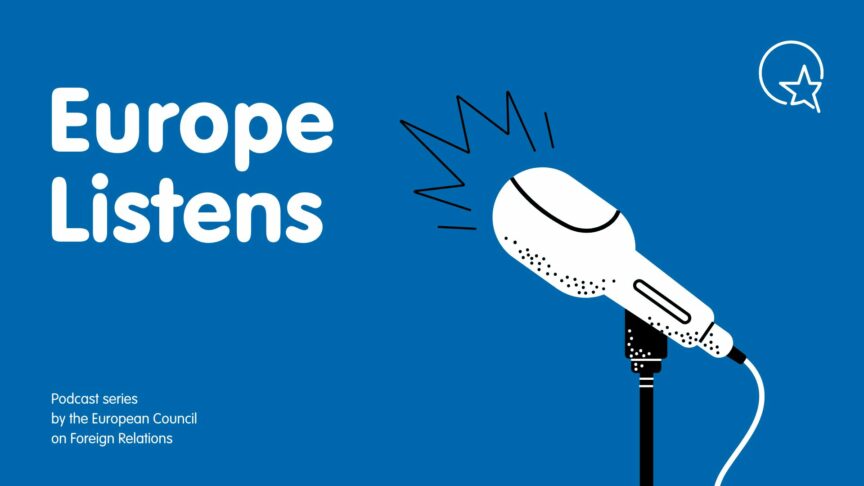
The global space economy is worth a whopping $469 billion, and growing fast. Commercial interests are proliferating; more and more countries are launching satellites…
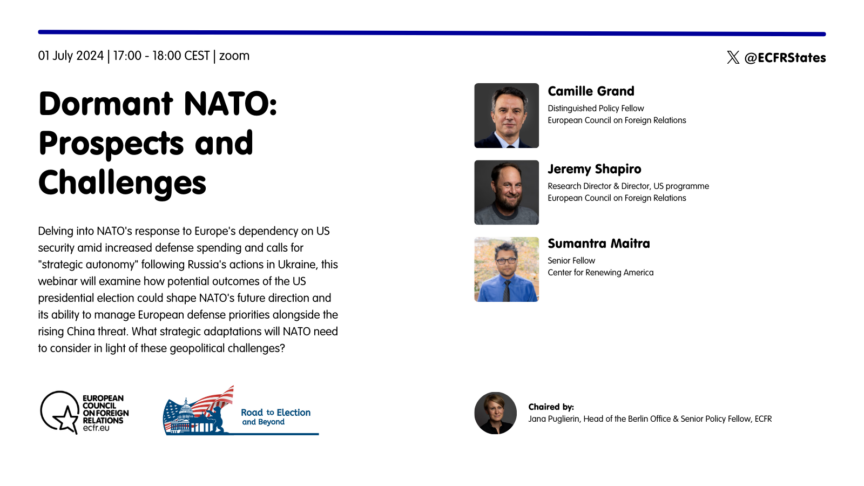
Russia’s war against Ukraine has shown how much the Europeans are still dependent on the US to ensure their security, despite all the talk of…
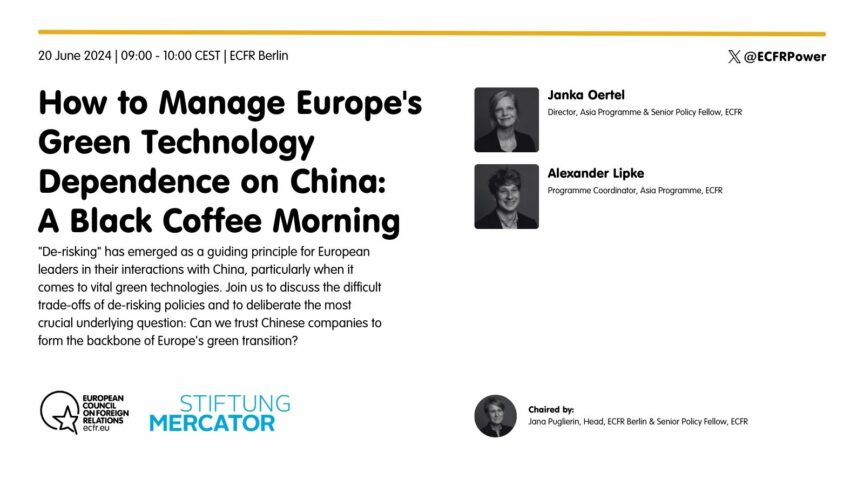
As the global landscape shifts towards strategic rivalry between China and the advanced industrial economies of the West, Europe finds itself at a crossroads, needing…
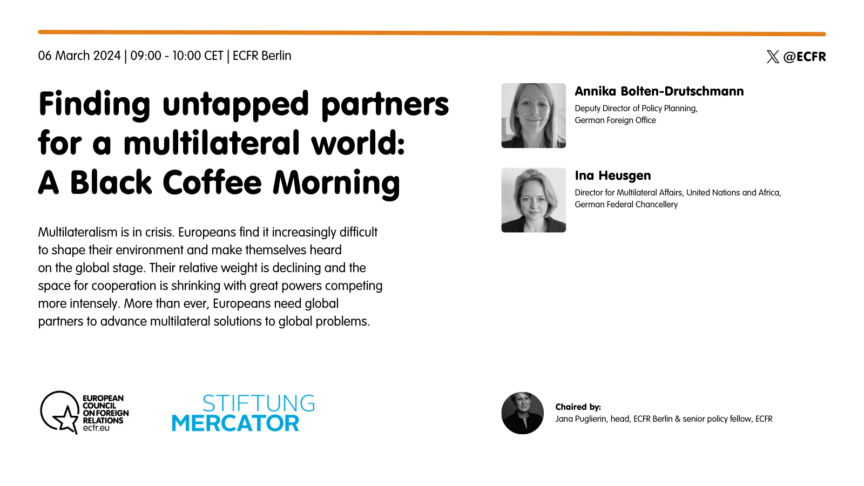
Multilateralism is in crisis. Europeans find it increasingly difficult to shape their environment and make themselves heard on the global stage. Their relative weight is…
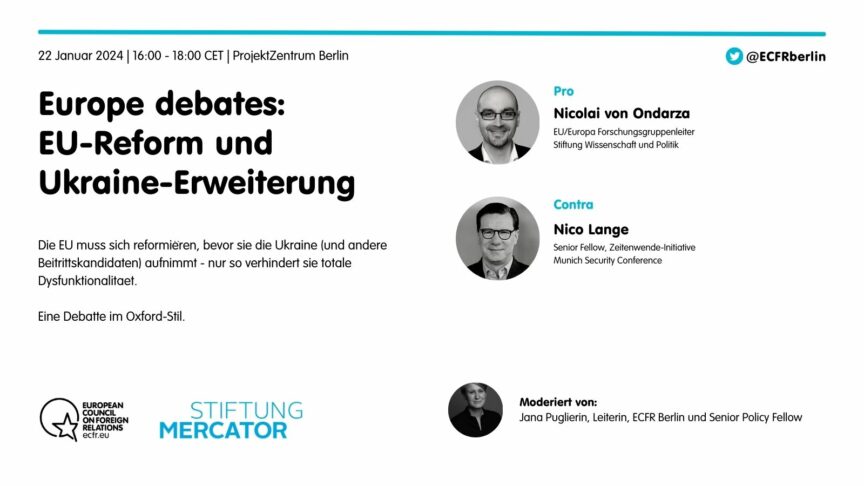
Die EU muss sich reformieren, bevor sie die Ukraine (und andere Beitrittskandidaten) aufnimmt – nur so verhindert sie totale Dysfunktionalität
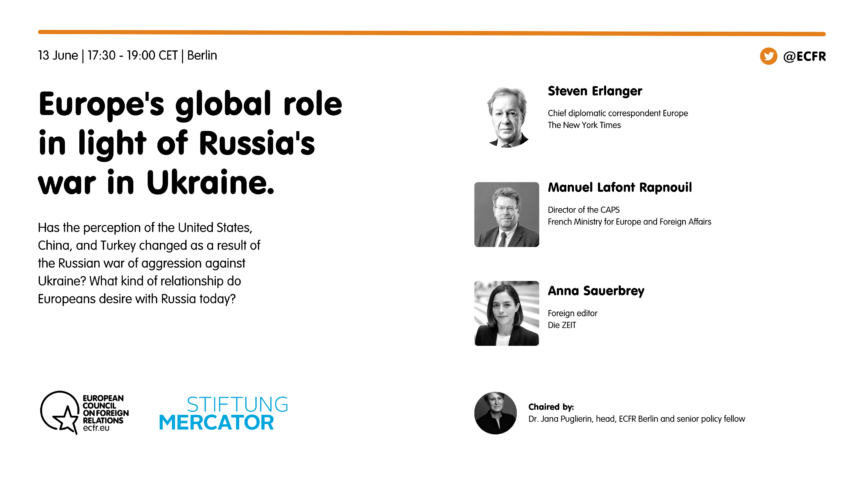
What do Europeans think about Russia, China, and the war in Ukraine? Join a panel of policymakers and expert observers to analyse ECFR’s latest public opinion…
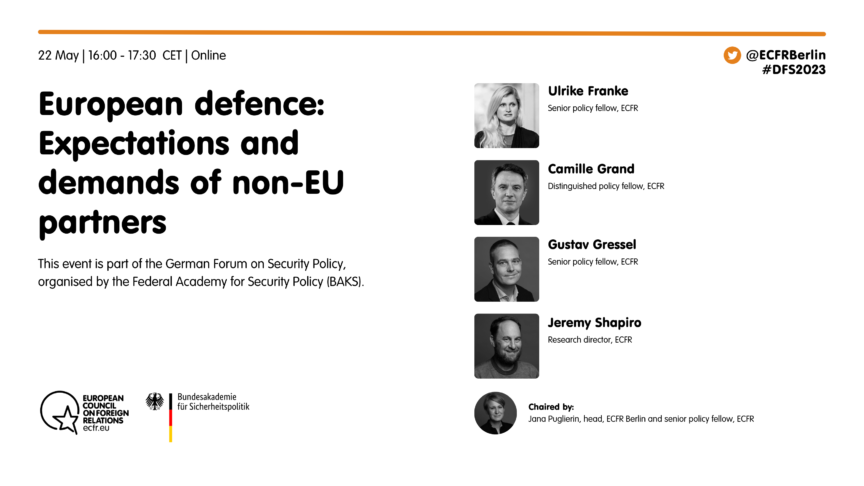
This event is part of the German Forum on Security Policy, organised by the Federal Academy for Security Policy (BAKS).
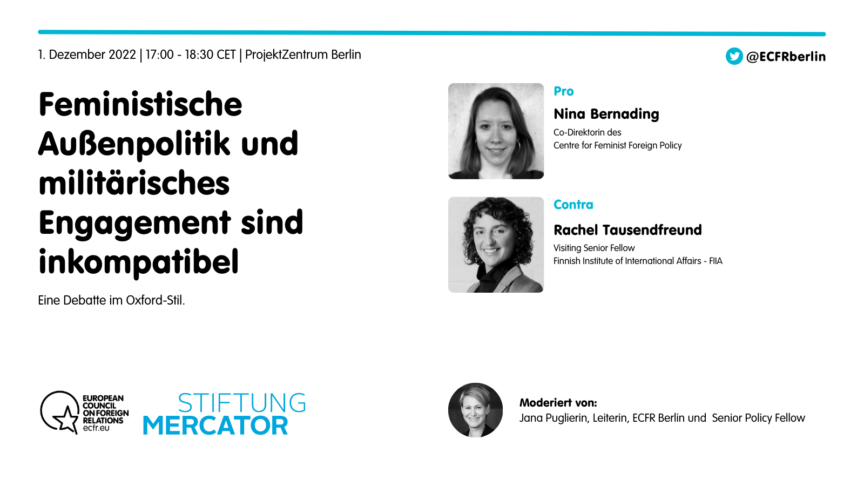
This debate is part of ECFR’s Re:shape Global Europe project funded by Stiftung Mercator
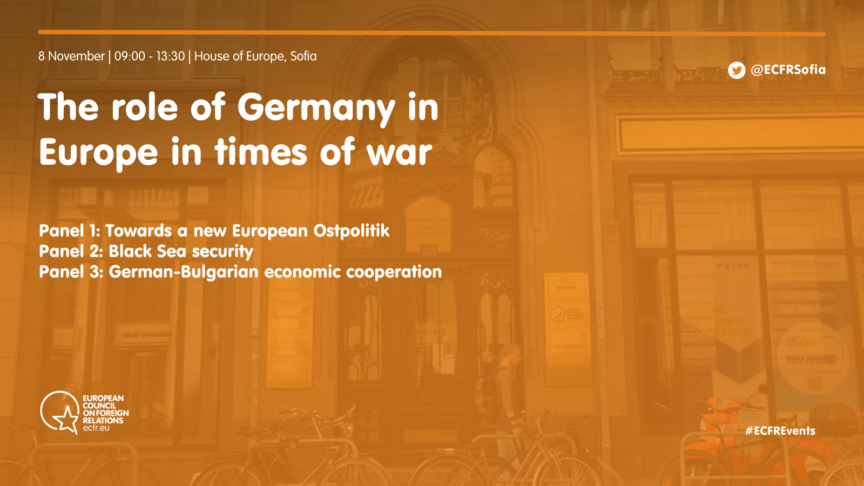
We will discuss Germany’s role in Europe and will reflect on how the new European order is viewed in Berlin

In conversation with Jana Puglierin, Gideon Rachman will present his book “The Age of the Strongmen”
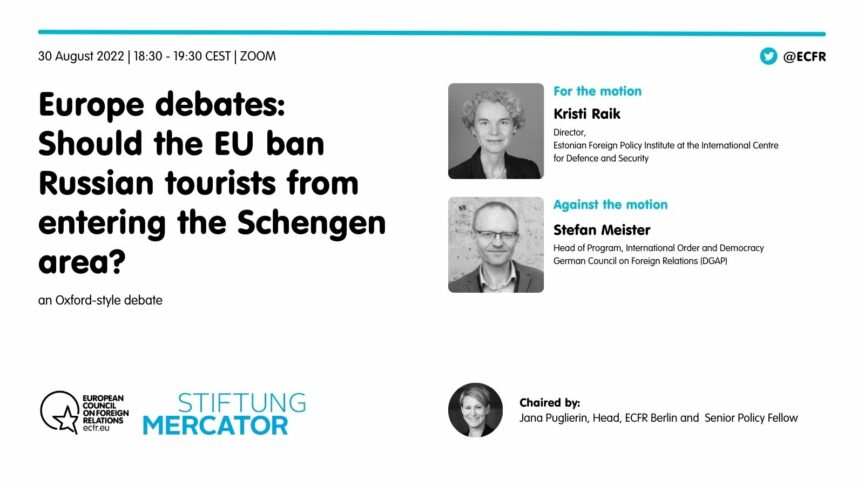
This debate is part of ECFR’s Re:shape Global Europe project funded by Stiftung Mercator